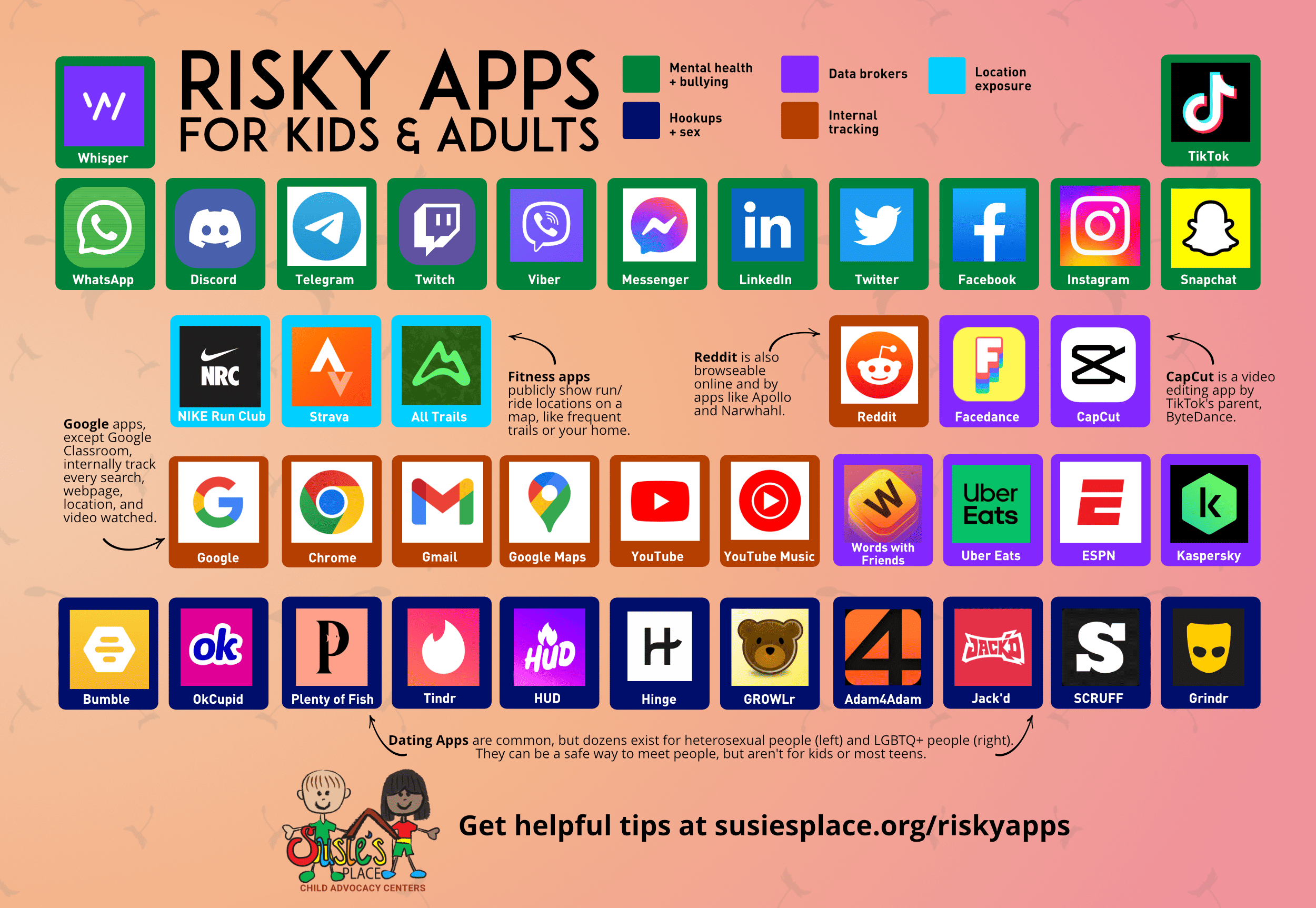This post is part of a three-part series

The risks of being shown personalized ads may be inherently low. But to kids, apps and their ad-driven business models pose other risks to body image, self-esteem, mental health, and physical protection.
A teen who views Instagram, Google services, TikTok or many other ad-supported apps risks falling into a harmful cycle that further exposes them to unrealistic body expectations or risky products like vape pens.
Even apps like Words with Friends, ESPN, and Kaspersky security apps fall into this category because they consume unusually high amounts of user data they re-sell to third-party ad networks that appear across the web.
These ad networks work like this:
- A young girl interested in makeup, fashion, or glamour likely watches related YouTube videos, reels, or feeds.
- Sensing the girl consumes these feeds and videos, ads begin appearing, offering new channels, feeds, videos, and products.
- These ads can be so well-targeted they’re impossible to ignore, even if they’re never tapped on.
Ads, by extension of the algorithm that presented them, can encourage viewers to believe in or pursue unachievable body standards and unrealistic expectations of beauty and self-worth.
Kids and teens are more susceptible to peer influence, too, causing them to seek validation through online activities. UCLA studies suggest sixteen or seventeen-year-olds are at peak ages for social influence.
Tips for adults and ad-supported apps:
- Recognize the only way to eliminate ad-tracking is often not to use the apps at all, which may be unrealistic for some services, like Google and YouTube.
- Recognize your kid may be showing sudden changes in behavior due to being exposed to ads, videos, images, and other feeds online.
- Talk to your kids about body safety, recognize when they may be pursuing unrealistic body types, and how to live sustainable, healthy lifestyles.
- Talk to your physician, school counselor, or coaches about options if your child shows interest in losing weight, exercising more, or changing their diet. Consider ways you can be supportive that might help them and yourself.


